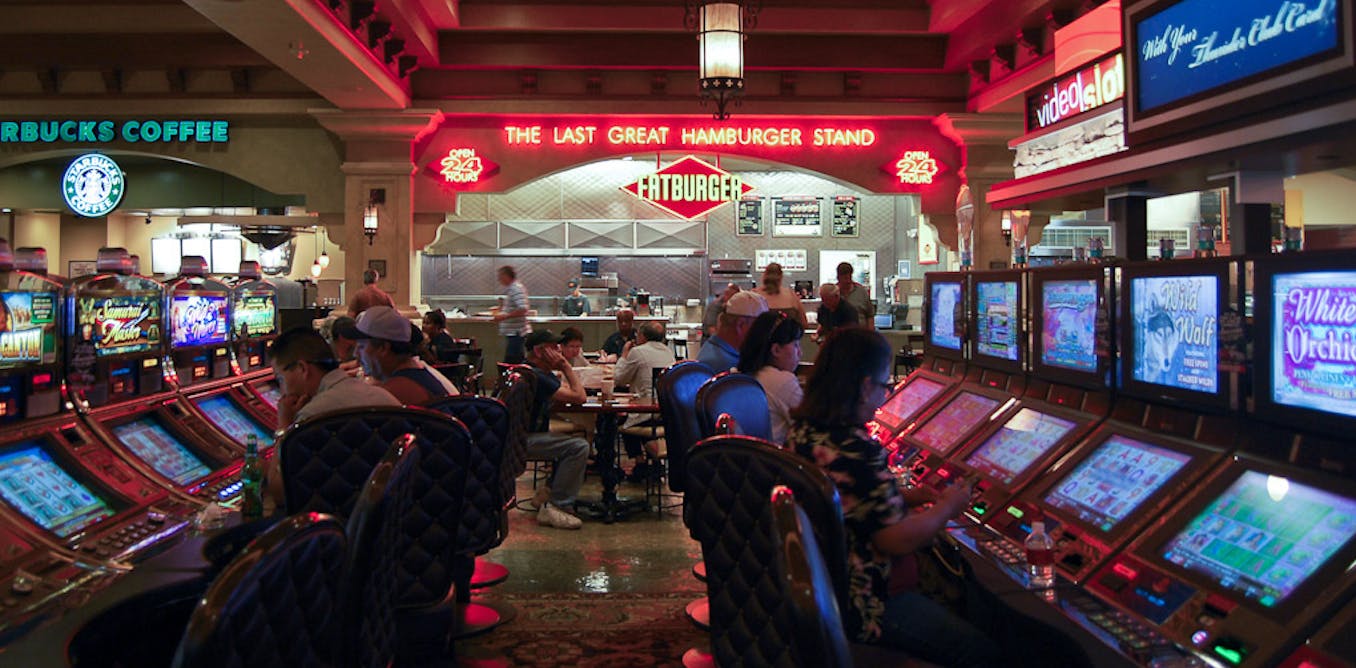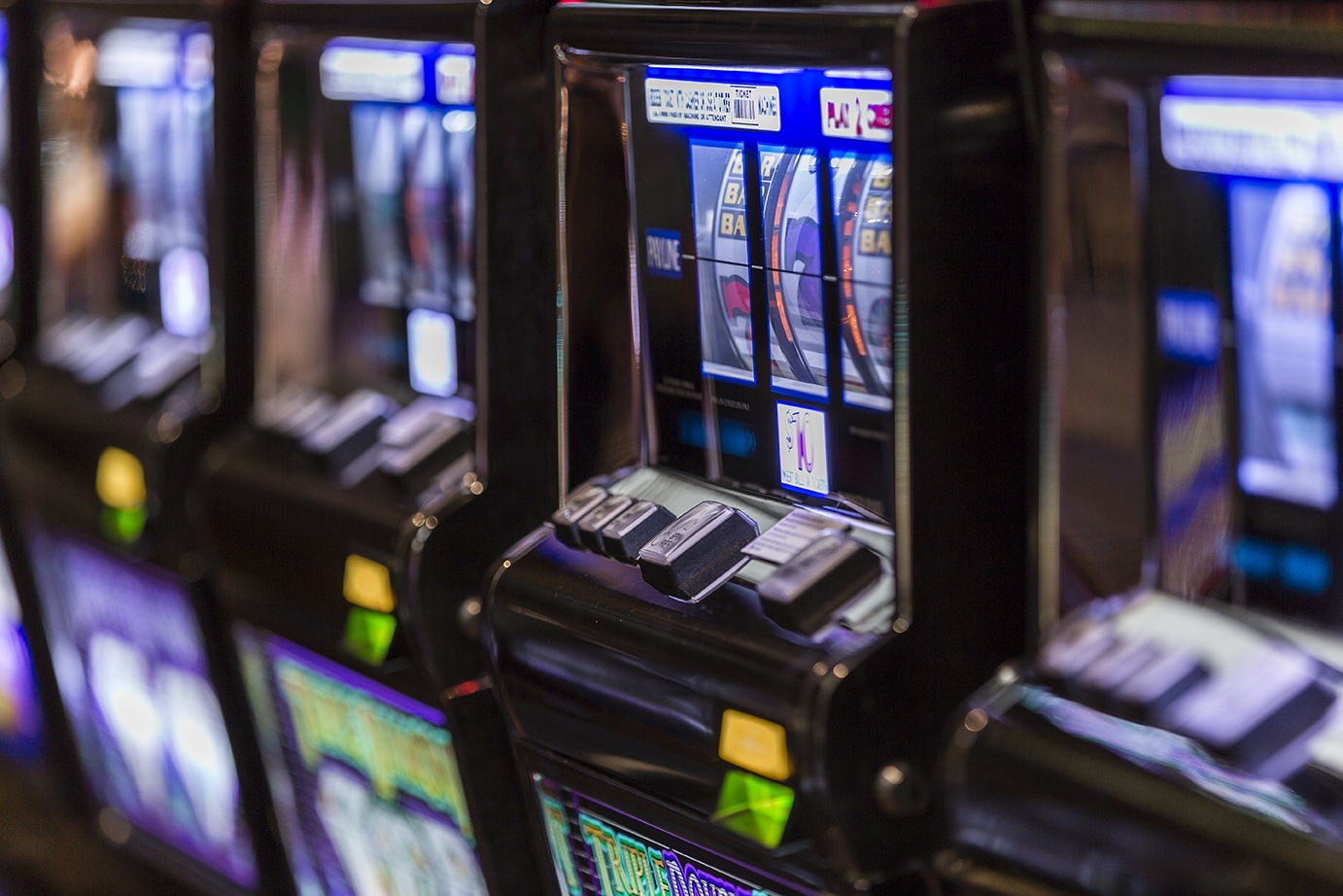Slot Machine Odds Indian Casinos
Posted By admin On 26/03/22QUESTION: What is the Difference in Gambling at Indian Reservations and Regular Casinos?
ANSWER: In the world of brick-and-mortar gambling, there are traditional casinos and then there are Indian reservation casinos (or Indian Casinos). At first glance, the two might not seem much different, but scratch beneath the surface and you’ll find a whole host of distinctions.
Someone hit a jackpot on the machine you just left - so you would have won that jackpot if you kept. True slot machine games are Class III games. Native American casinos offer Class II bingo games that are made to look like slot games. The game cabinets must display the casino bingo games that are used to determine wins. Class II slot machines may have reels and bonus games but they’re not really slot machine games as defined by federal law.
Knowing the difference in gambling at Indian reservations casinos and regular casinos might not make much difference to your bankroll, but it should provide you with a greater understanding of how the industry works. And for those who take their gaming seriously, every scrap of information is valuable on some level.
- Best Casino for Live Dealer Games
- Accepts all Countries and US States
Distinctions between Traditional and Native American Gambling
The items listed below are some of the most notable differences between gambling in Las Vegas and at a Native American casino. The next time you decide to go on a gaming road trip, give both locations a try and see if you can spot additional variations.
Location – The most fundamental difference is related to location. As the name would indicate, Indian reservation casinos are always located on lands set aside by the government for the use of specific Native American tribes. Regular casinos, meanwhile, can exist on any other property.
The total geographical area of reservation land equals 2.3% of the total area of the United States. Some tribes have multiple reservations allotted to them, while around 200 of the nation’s 550+ recognized Indian tribes have no land at all.
Revenue – While Las Vegas and Atlantic City would hate to admit it, the annual revenue from casinos on Indian reservations exceeds the combined totals for gaming in both cities. In 2009, for example, Native American locations pulled in $26.5 billion across 28 states.
Selection of Games – Most reservation casinos offer the same games as their competition. Some states have different laws though, so you might not find certain table games in a particular casino, for example. Or the way the slot machines work might vary. (See our post about Class II and Class III slot machines for more details about that.)

Payback Percentage – This is the biggest difference between gambling at regular casinos and Indian reservations. In many states (Connecticut is a notable exception), Native American -Indian- casinos are not required to report their payback percentages, which means the number could be decidedly unfriendly to the player. However, any Indian reservation casino manager will tell you that their rates are on a par with the competition, and there may be some truth to that. After all, a lower payback percentage on slots and other electronic games means fewer winners. Over time, a casino with a reputation for paying out less will begin to lose business. Whether they offer a 75% or 90% payback, the casino is still going to turn a profit.
Size – When it comes to the overall size of a brick-and-mortar gaming establishment, the folks in Atlantic City, Reno, and Las Vegas have a hard time competing with casinos built on Indian lands. Much of this has to do with location, as regular casinos have to build in cities that are already filled with everything from residential housing to shopping malls. Indian land is more wide open, which makes it easier to allot massive tracts of land for construction.
Today, the second largest casino in the United States is the Foxwoods Resort Casino on the Mashantucket Pequot Indian Reservation in Ledyard, Connecticut. It has over 6,300 slot machines, 380 table games, and the biggest bingo hall on the planet. The largest U.S. casino (WinStar World Casino in Thackerville, Oklahoma) is owned by the Chickasaw Nation of Oklahoma, although it is not located on an Indian reservation.
Legality – While traditional land-based casinos are subject to all state and federal laws, a 1979 Supreme Court decision ruled that states could not regulate activities on Indian reservations or tax their occupants. This was bolstered by a 1987 decision that said casino activities could not be state regulated as long as the type of gambling offered was legal in the state.
The law was further defined by the Indian Gambling Regulatory Act, which requires Indian tribes to consult the state before offering casino gaming. In the case of an impasse, the Secretary of the Interior is called upon to mediate and make an eventual ruling.
The revenue from casinos on Indian reservations is meant to be spent on charitable ventures and tribal government operations. In some cases, however, the profits eventually find their way into the hands of tribal members, although you can count on the state and federal government getting their cut.

Cultural Considerations – While traditional casinos offer a wide variety of themes, visitors to gambling locations on reservations should expect a certain Native American flair to the décor. This isn’t always true, of course, but tribal leaders tend to be proud of their heritage and make every effort to provide displays and exhibits to educate their customers. At the very least, some basic decorations in the Native American tradition can usually be spotted in certain locations throughout the establishment.
Other cultural issues sometimes relate to traditional Indian beliefs and superstitions. An interesting example occurred when the Fire Rock Navajo Casino was under construction in New Mexico. Numerous problems led some to believe that the endeavor was being cursed by skin-walkers, magical practitioners adept at turning into animals and generally behaving in a sinister fashion. The construction continued, however, and the CEO of the casino later assured visitors that various blessings had been performed to ward off evil. Despite possible efforts from the forces of evil, the casino is still in operation.

Management – While you might suppose that casinos on Indian reservations are managed by members of the tribe, you would be wrong in many cases. In this way, gambling at Indian reservations isn’t much different than regular casinos, as they want to bring in experts who can squeeze every ounce of profit out of the business. For example, Harrah’s manages one such location in North Carolina, and Donald Trump once tried his hand at managing a reservation casino in California.
Next time someone is wondering about the differences in playing at Indian Casinos and regular casinos you’ll be able to provide an appropriate and informed answer. Armed with this knowledge, serious players can then make a determination about the best place to play.
No other segment of the gaming industry has benefited more from the technology revolution than the slot machine. Once considered the ugly stepdaughter placed on the gaming floor to appease the spouses of table players, the slot machine has been transformed into the fairy princess of the gaming world. With her, she has brought a dowry of riches no one would have imagined for the casino and a few lucky players as well. Over twenty years ago the slot machine accounted for 30 percent of the casinos' profits. Today it accounts for about 70 percent. Computer technology and the ability to play with little to no gambling knowledge makes it possible to offer life-changing jackpots big enough to turn a pauper into a king.
However, the fact that it doesn't take much gambling knowledge to play means that most people don't understand the inner working of the slots -- which makes it easy to explain a loss or a win with some false logic. Like any other 'wives tales' these are passed from person to person until they become gospel. Most of these myths and misconceptions are harmless but they can add to your frustration and take away some of the enjoyment of your casino visit. Let’s take a look at a few of the most popular myths and the truth behind them.
Myth #1
Someone hit a jackpot on the machine you just left -- so you would have won that jackpot if you kept playing.
This is probably one of the most common notions about slot machine gambling -- but it's patently false. The slot machines have a computer chip inside that runs the Random Number Generator (RNG). The RNG is continuously cycling through numbers even when the machine is not being played. These numbers correspond to the stops on the wheel that display the winning or losing symbols that you see when the reels stop. When you hit the spin button or pull the handle, the RNG picks the combination at that given microsecond. If you had stayed at the machine, it is highly unlikely that you would have stopped the RNG at the exact nano-second to display that same combination of numbers. In the time it takes to talk with a friend or sip your drink the RNG has cycled through thousands of combinations.
Myth #2

You can tell the odds of winning by counting the symbols on each wheel.
Actually, you can't. The RNG generates a number for each spin. There can be hundreds of virtual stops on each wheel even though you only see a few symbols. For example, you may see 20 symbols on each wheel of a three-reel machine. You figure 20 x 20 x 20 = 8,000 combinations and your chance of hitting the jackpot is 1 in 8000. In reality, the computer chip may program 256 stops for each wheel which makes the odds 256 x 256 x 256 =16,777,216 combinations. Being able to generate millions of combinations is the reason that slots can offer large paybacks.
Best Indian Casino Slot Machines
Myth #3
Casinos can loosen or tighten the slot machines with the flip of a switch.
In actuality, the slot machines have a computer chip in them that determines the payback percentage. These are preset at the factory. In order for a casino to change the payback, they would have to change the chip. In most jurisdictions, there is paperwork that has to be filled and submitted to the Casino Control Commission for each machine if the chip is changed. It's time-consuming and the chips are very expensive. For this reason, it is more economical to decide on the payback percentages before purchasing the machines and having the factory ship them with the proper chip.
Slot Machine Odds Indian Casinos Real Money
Myth #4
Slot Machine Odds Indian Casinos Slot Machines
A machine that has not been paying out is due to hit.
There is no way to determine if a machine is due to hit. Each spin is a random occurrence and has no bearing on what has happened previously. Don't ever play more than you should because of this misconception -- it will be devastating to your bankroll if you do.
Myth #5
The temperature of the coins played will affect the way a machine pays.
Unfortunately, the machine is not affected by temperature. It doesn't matter if you play hot, cold, old or new coins. The coin slot is a mechanical device and has no feeling.
Myth #6
Slot Machine Odds Indian Casinos Slots
If you use your slot club card the machine will pay back less.
This may well be the most damaging myth of them all. There is no link between the card reader and the RNG, but by not using your player's card you are denying yourself valuable comps and sometimes cash back from the casino.